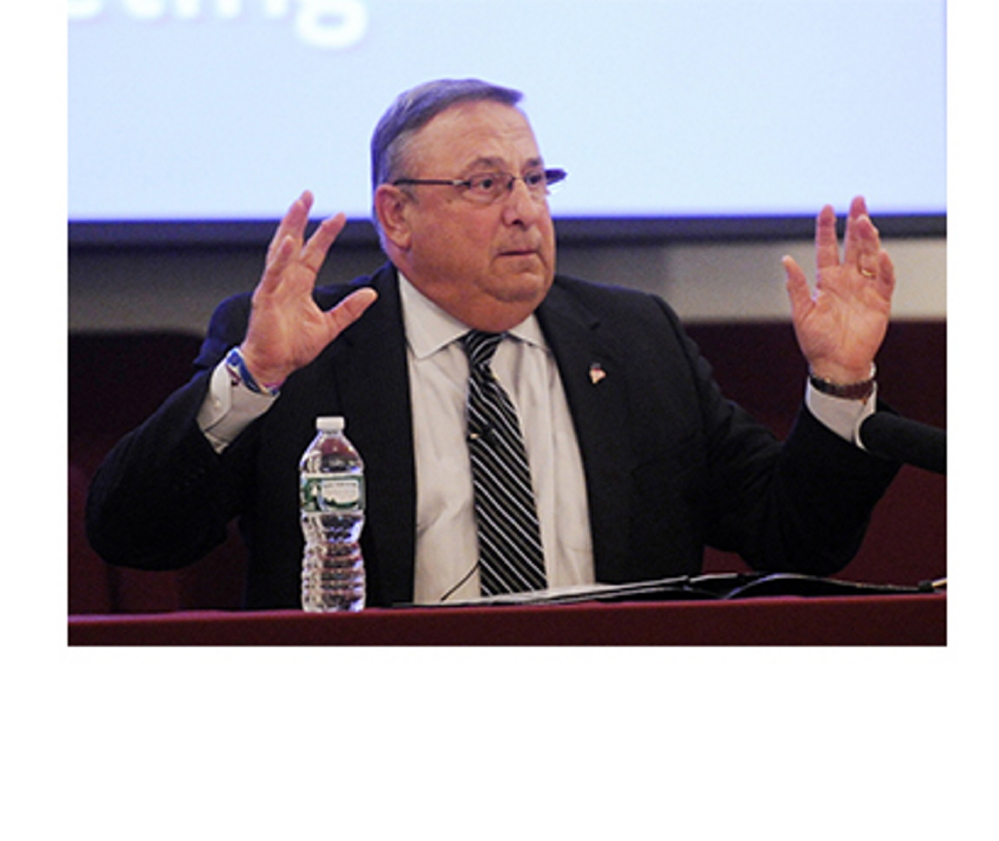It shouldn’t take a law to force equal branches of government to cooperate for the good of the state.
Of course, it shouldn’t take a subpoena for the Legislature to get the information it needs from state agencies, either.
But that’s where we are, after Gov. Paul LePage reinstituted his policy keeping agency commissioners and other administration officials from testifying in front of legislative committees.
Legislative leaders will consider a bill next month that would require commissioners to provide in-person testimony.
If made law, it likely would face a constitutional test, and it absolutely would face a fight from the governor. But it may be the best hope for restoring the exchange of information necessary to produce good, timely legislation.
LePage outlined the policy in a letter to legislative leaders in October, saying that department officials would answer questions only through writing.
The governor has presented the policy as a way to protect his commissioners against “disrespectful” legislators, who the governor claims call administration officials to public meetings only to grandstand.
On this point, LePage, who is quick with biting, often factually thin remarks about his rivals in the Legislature, may be projecting.
Mary Mayhew, commissioner of Health and Human Services, and Jay Harper, superintendent of Riverview Psychiatric Center, were asked to appear earlier this month in front of the Government Oversight Committee, not to be berated or scolded but to answer real and urgent questions about the ongoing problems at the hospital.
A report from former Supreme Court Chief Justice Daniel Wathen, who is court-assigned to see that Riverview patients are cared for properly, detailed continued problems at the state hospital, including insufficient staffing and substandard care, many of the same issues Wathen had pointed to a year ago.
However, the report differed markedly from statements by the LePage administration.
Finding out why there are two wildly different interpretations about what is going on at Riverview is not only the GOC’s job, it also goes to the heart of fixing Riverview for the long term.
More than two years after serious problems were unearthed at the hospital, does the state have the right plan in place? Can Riverview work as currently constituted, or must a separate facility be built, as LePage has suggested?
Wathen’s report raises those serious questions, and the input of the administration is necessary to answer them.
Written responses, with no real opportunity for follow-up questions or frank discussion, are not a suitable replacement for in-person appearances.
The same can be said of the work of other committees and commissions that are being held back by the administration’s lack of cooperation.
That is certainly disrespect, but on the part of the governor, and he could go a long way toward lessening the animosity at the State House by ending this disruptive policy.
Short of that, the Legislature has to act. It shouldn’t take a new law, but that might be the only choice.
Send questions/comments to the editors.



Comments are no longer available on this story